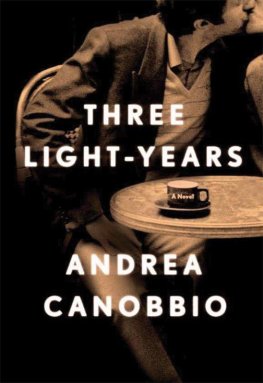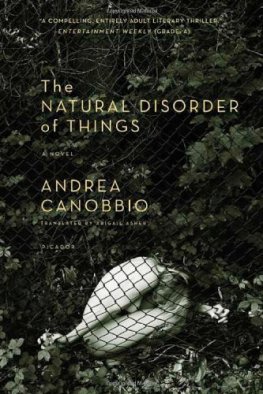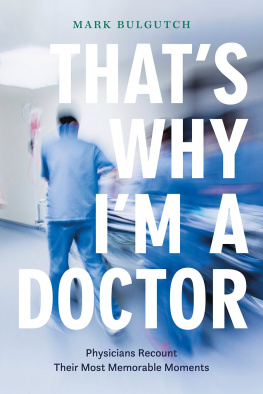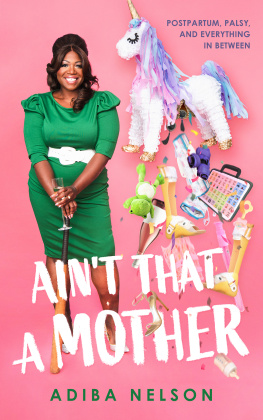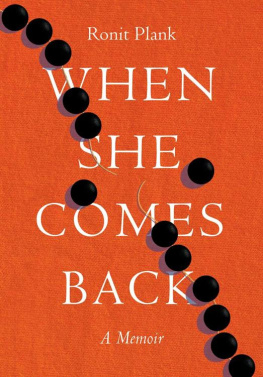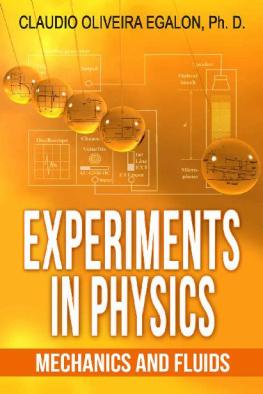Andrea Canobbio
Three Light-Years
TO
Pier Vittorio Tondelli
AND
Daniele Del Giudice
I know, however, of a young chronophobiac who experienced something like panic when looking for the first time at homemade movies that had been taken a few weeks before his birth.
VLADIMIR NABOKOV, Speak, Memory: An Autobiography Revisited
A DECLINE IN THE BIRTHRATE
Memory is an empty room. Gone are the bookshelves littered with journals, gone are the chairs and table, the paintings, the calendar, and the computer screen filled with words. My father is gone, too, effaced by thousands of identical moments, deleted by the same repetitive gestures day after day, as he sat there tapping the keys.
Thats how he would have remained, an empty man in an empty room, like a cipher, for who knows how long, if Cecilia hadnt appeared and asked for his help. It was six oclock on an evening in late March. The pediatricians lounge became a stage on which a young woman in a white coat hurried in, alarmed, complaining about not being able to find anyone. Her eight-year-old son had been admitted to the ward a few days earlier and she was looking for a doctor, or at least someone dressed as a doctor, who could persuade him to eat. My father noticed the name of another hospital sewn on the womans coat, noticed her red, chapped hands, her unmanicured nails, and the absence of rings. He observed her hands in detail, to the point where he could recall them years later, because he could not look at her face: already in those first moments her eyes disturbed him.
Had the woman stolen the coat or was she wearing it because of some bizarre trend even though she wasnt a doctor? No, she was describing the situation in very precise terms; she spoke like a physician. The child was undergoing parenteral nutrition; electrolyte balance and renal function were returning. But he had to start eating on his own. He had taken a dislike to the head nurse, and perhaps a man could persuade him: the attending physician the day before had managed to. The boy was fed up with having women around him his mother, his grandmother, his sister. All he wanted was to be left in peace. Like everybody else, my father thought the ones who are always hungry, and the ones who are never hungry. All they ask is to be left in peace.
He told Cecilia hed help her and followed her into the first room on the ward. Not that he had any high hope of success: it wasnt his specialty, he wasnt a pediatrician, and he didnt know how to deal with children. He was sure that a nurse would soon come along to relieve him.
The boy was sitting on the middle bed with his back to the door, his legs dangling. He was wearing a blue hooded sweatshirt over his pajamas and had an open book in his lap, while his meal, semolina porridge and applesauce, had been left on the cart apparently untouched. The full plates told the story: the nurse must have ordered him to eat in the usual commanding tone that so impressed parents, but had no effect at all on children. Not wanting the scene to repeat itself, and not wanting her child to be forced, Cecilia had panicked.
My father paused in the doorway, motioned for her to stay outside, then went in with a distracted air, absently examining the charts at the foot of the beds. A sullen-looking little boy occupied the bed near the door, and a child with a mop of red hair had the one next to the window. A woman, presumably a mother, was sitting in the far corner, knitting. There were still women who knitted, then; you saw them in waiting rooms, in the wards, mysterious and comforting like childhood scars you rediscover on your skin from time to time.
Cecilias son was watching the red-haired boy maneuver two dinosaurs on the bed in a noisy, never-ending battle. He looked a lot like his mother; his face was hardly sunken, he didnt seem emaciated. On the bedside table, next to a bottle of mineral water and a glass, four toy cars rested on a sheet of graph paper on which the diagram of an angled parking lot had been drawn with great precision. My father thought the child must love things that were done just so, that he must love any form of order.
The book in the boys lap was called Supercars. My father asked to see it. As he leafed through it, his eye fell on an old Aston Martin. The car James Bond drove, he said contentedly. He told a story about a miniature model that theyd brought him from London when he was little, from which the passenger could be ejected by pushing a lever. Meanwhile, he sat down on the bed next to the child. He picked up the spoon and began to stir the steaming porridge, stirring and talking, stirring and talking. This went on for a while, my father describing the gadgetry found in James Bonds Aston Martin, the bulletproof rear shield, the smoke screen, the machine guns, the tire slashers projecting from the wheel hubs, and the boy listening in silence, not missing a word.
Finally my father said he had to go. Maybe hed come back tomorrow to tell him about 007s skirmishes with SPECTRE.
Whats SPECTRE? the boy asked.
Very bad people.
Crooks?
Thieves and killers, but James Bond always beats them.
Why is it called SPECTRE?
To scare people.
Behind them, the sullen little boy offered another explanation: Because theyre invisible. As if it were something obvious and well known.
My father viewed the scene from above, like the eye of a hidden camera hanging from the ceiling. The room captured by the eyes slow whirl, people and things suspended in space but all of them drawn down to the bottom, where Cecilias son had declared cold war on his supper.
My father turned to the other bed. He asked the red-haired boy the names of his two dinosaurs, but the child didnt know or was too shy to answer. The sullen little boy, more interested in being a know-it-all than pouting, spoke up again: they were a Tyrannosaurus rex and a Diplodocus. His mother, over in the corner, smiled without looking up from her knitting needles.
Hed better go; what did he think hed accomplish by staying. He started toward the door. To gain a bit of time he asked the sulky boy what music he had downloaded on his iPod. He stuck the earbuds in and began listening to a band called Punkreas at a deafening volume. Cecilias son had begun to eat. He didnt see it with a hidden camera, didnt perceive it through a sixth sense, and didnt hear the sound of the spoon clinking on the plate. He saw him reflected in the empty IV bag still hanging on its stand, between the two beds.
He followed the meal, bit by bit, so focused on the small convex image that he managed to tolerate the musics impact on his eardrums with surprising ease. At the end he removed the earbuds and told the boy that Punkreas was interesting. Dont keep the volume too high, though, he added, perhaps only to make himself credible and reassume the mantle of a boring adult.
He turned and retrieved the cart without looking directly at the child, resisting the temptation to say thats a good boy. When he went out pushing the trophy of empty plates, he found Cecilia beside the door, leaning against the wall. She stared at him with a faint smile and shining eyes. She didnt say a word, just held an open hand out in front of her as if to stop him from speaking, as if to keep him at a distance.
My father walked to the kitchen with the cart, and when he got back to the hallway Cecilia had already gone inside to the child. The corridor and the ward were sucked into oblivion, devoured by time; rejected, my father went out through the glass door, unable to create any more memories here and resigned to never seeing her again.
* * *
I think back to that chance meeting, the origin of it all, and its fortuitousness. It never ceases to amaze me. What is my father doing in Pediatrics? Hes an internist, but his best friend works in Pediatrics and they have a computer an old machine, easy to use, regardless of, or maybe thanks to, its grimy plastic and scratched screen on which he is correcting some proposed new guidelines.

